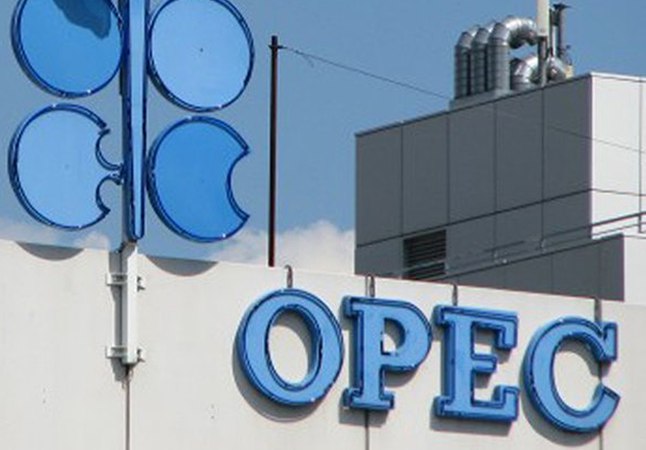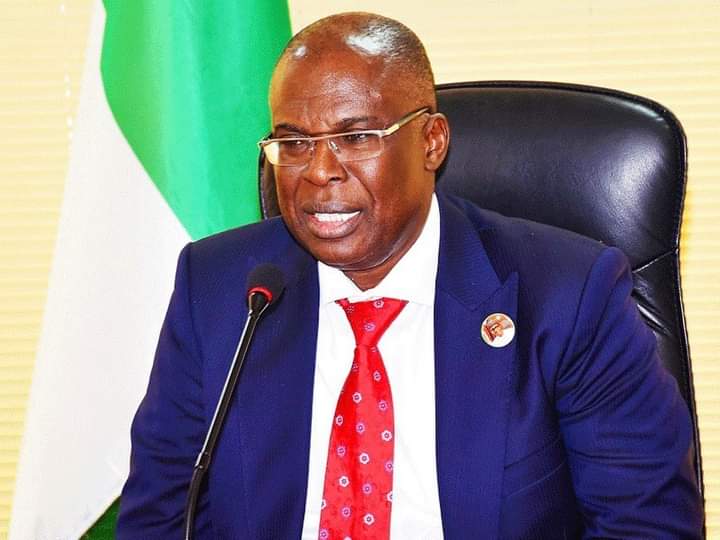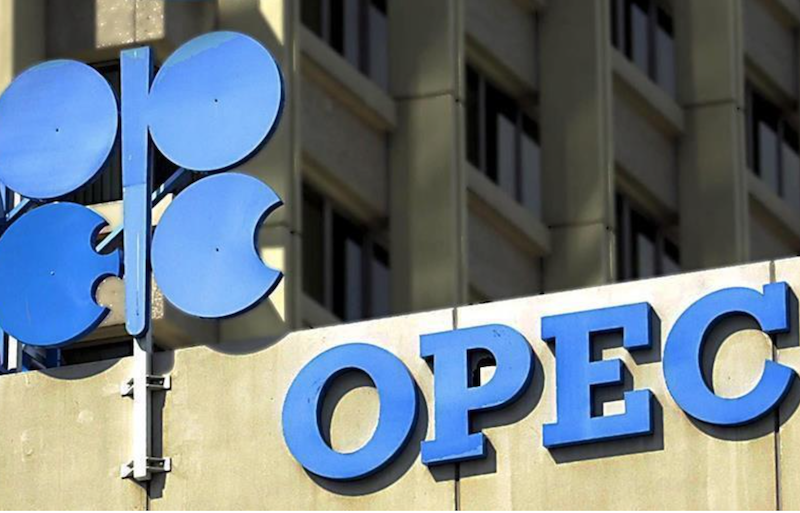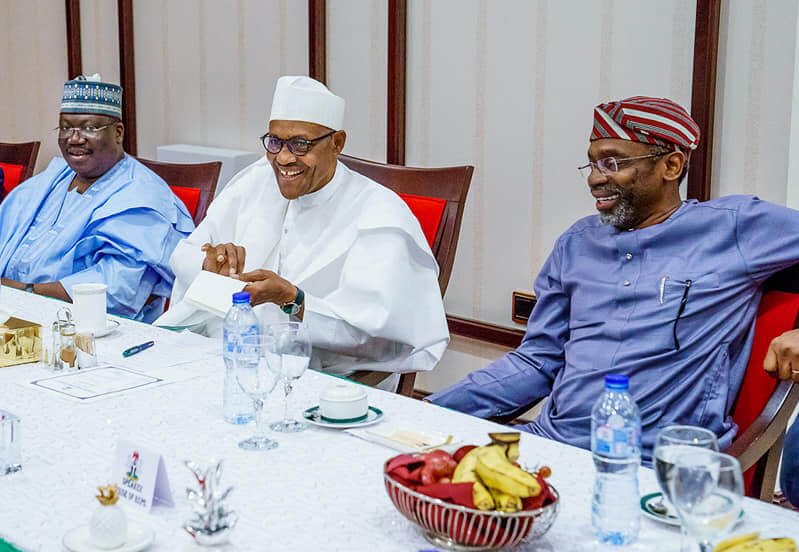Tag: OPEC
-

OPEC cuts 2022 oil demand over economic concerns
The Organisation of Petroleum Exporting Countries (OPEC) has revised downwards the demand for crude oil in 2022.
ALSO READ: Crude oil probe: Reps demand proper report of volume of produced oil by NUPRC
ALSO READ: OPEC daily basket price now $108.81 per barrel
-

OPEC warns about abandoning oil and gas in Africa
Organisation of Petroleum Exporting Countries (OPEC) has said the mounting pressure to abandon oil and gas could affect the production of gas reserves in Africa.
Speaking at the Nigeria Energy Forum organised by Energy and Corporate Africa, alongside the CERA Week in Houston, OPEC’s Secretary-General, Sanusi Barkindo, pointed out that discussions on climate change and energy transition were more of emotion than fact.
While the continent has about 125 billion crude oil reserves and 16 trillion standard cubic meters of natural gas, Barkindo said, “this is wrong. Rational discussions need to be based on facts, hard data and science and include all stakeholders.
“Additionally, we are witnessing investors, environmental lobbyists and even some corporate boards pressuring oil and gas companies and governments to pursue increasingly radical policies and initiatives that could, in the end, be more disruptive, than productive, for the global energy industry.”
While the need for net-zero remained critical according to him, the massive challenges for developing countries like Nigeria must be put in context, considering the energy poverty on the continent.
Barkindo said: “We need to continually keep in mind that access to affordable, reliable, sustainable and modern energy is a right for all, not a privileged few, and is enshrined in the United Nation’s Sustainable Development Goal 7.
“The unfortunate reality for developing countries is that a staggering 759 million people worldwide did not have access to electricity in 2019, with around 79 per cent of them located in Africa.”
He explained that in Nigeria alone in 2019, only 55 per cent of the population had access to electricity and only 13 per cent had access to clean cooking fuel.
According to the OPEC boss, the energy poverty numbers for Africa are stark, and Africa alone accounts for less than three per cent of global emissions.
“We also need to remember in the energy poverty debate that Africa is still relatively unexplored in terms of oil and gas, bestowed with approximately 125 billion barrels of proven oil reserves and 16 trillion standard cubic metres of natural gas.
“The capacities and national circumstances of developing countries must be taken into account in all actions,” he said.
-

Why Nigeria is unable to meet OPEC quota — Sylva
Chief Timipre Sylva, Minister of State for Petroleum Resources, has attributed the inability of Nigeria to meet the Organisation of Petroleum Exporting Countries (OPEC) quota to a lack of investments in the oil and gas sector.
Nigeria’s OPEC quota is pegged at 1.8 million barrels per day (bpd) but in the last few years, the country has struggled between 1.3 and 1.4 million bpd.
Sylva, according to a statement by his Senior Adviser (Media and Communications) Horatius Egua, on Wednesda, spoke at a ministerial plenary, at the ongoing Ceraweek, in Houston, Texas.
He said the speed with which international oil companies and other investors were withdrawing investments in hydrocarbon exploitation had contributed significantly to Nigeria’s inability to meet OPEC target.
According to Sylva, the rate at which investments were taken away was too fast.
“Lack of investment in the oil and gas sector contributed to Nigeria’s inability to meet OPEC quota. We are not able to get the needed investments to develop the sector and that affected us,” he added.
He also cited security challenges as another major factor that contributed to the lack of significant growth of the sector.
The minister added that the drive towards renewable energy by climate enthusiasts had discouraged funding for the sector.
Sylva, however, called for a change of attitude, stressing that in decades to come, hydrocarbon would continue to play a central role in meeting the energy needs of the world.
The minister, who is an advocate of gas as a transition fuel for Africa, said although Nigeria was in full support of the energy transition, the country, and the African continent, should be allowed to develop at its own pace.
This, he said, would enable the continent to be able to meet the energy needs of the over 600 million people who have no access to any form of power in Africa.
“There are about 600 million people in Africa without access to power, and of that number, the majority live in Nigeria.
“And of the over 900 million people without access to power in the world, the majority live in Africa. So how do we provide access to power for these people if you say we should not produce gas?
“We believe that gas is the way to go. We believe that gas is the way forward and the one access to power. For the energy transition programme to be taken seriously we need to have an inclusive energy transition programme.
“We believe in energy transition but we as Africans have our own peculiar problems and we are saying that our energy transition should be focused on gas to bridge the energy gap.
“This is what we have been saying. We need a just and equitable energy transition programme,” Sylva stated.
He maintained that Nigeria was not in any way against any transition programme but urged promotion of renewable energy as the only path to energy transition to give the less fortunate countries the opportunity to achieve energy sufficiency before doing away with fossil fuel.
“As Africans, we are saying that we must be allowed to transit through gas. We cannot achieve one energy base load through renewable alone.
“The rest of the world must listen to us. We are happy that our point of view is being taken,” he said.
-

A Doctor’s Treatment for the Oil Curse – By Abu Quassim
By Abu Quassim
The oil curse is a complex disease. Broadly, it describes the policy and economic failures that come from an over-reliance on oil. It starts with misplaced optimism when prices are high that they will stay high forever. It translates into the failure to invest the proceeds of high prices to spur a productive economy. It ends with ruined public finances when prices fall and the economy falls further.
We have been suffering from years of low prices, compounded by the APC administration’s disastrous policies. Ordinary people are now paying the price as jobs are scarce, prices are rising, and young men are turning to crime in desperation. Tensions in Europe are raising oil prices, but unless the next president is serious about our economic development and sets us on a new path, the respite will only be temporary.
An agreement on the nuclear deal with Iran or OPEC raising production quotas could just as easily lead to prices falling again. In the words of John F Kennedy, the time to repair the roof is when the sun is shining. And now is the moment for us to choose our next John F Kennedy.
One of our nation’s great strengths is its federal system. We have numerous governors throughout the country taking different approaches to economic development. Not only do we get the opportunity to see how different policies work in practice, but we get the opportunity to see different policymakers and who rise to the top. One person and his record of achievements stands out – Dr. Abubakar Bukola Saraki.
Dr Saraki was governor of Kwara for eight years from 2003-2011 where he used the levers available to a state governor to spur the local economy, create jobs, and provide a better quality of life for the people. He then continued his track record of success in the National Assembly, becoming President of the Senate, ensuring that laws were structured to encourage economic development.
A theme that emerged during his time in different public offices was combining the weight of the public sector with the efficiency and competitiveness of the private sector. When he started his political career, Dr. Saraki instituted partnership with private industry to rejuvenate defunct commercial ventures owned by Kwara State. Whether paving the way for the Kwara state textile industrial company to partner with a private enterprise, or attracting foreign direct investment from South Africa to collaborate with the Kwara Furniture Company, Dr Saraki knew how to generate opportunities and growth. Instead of pursuing full privatization or sticking to sluggish state-owned enterprises, he delivered the best of both worlds.
Whilst in the Senate he drove through numerous acts designed to create jobs and reduce poverty, from the National Development Bank of Nigeria Act to the Investment and Securities Act. Returning to the theme of ensuring that the public and private sector worked in tandem to create the most value for Nigerians, he was instrumental in the passage of amendments to Public Procurement Act, which sought to institute a bias in procurement for Nigerian manufacturers and companies. This was a part of his wider “Made in Nigeria” campaign with local companies and manufacturers to promote Nigerian-made goods. However, he avoided the temptation of the extreme, and still allowed the government to procure from foreign suppliers but only if all local options had been exhausted. Transitioning from our state heavy economy to an efficient market economy without causing harmful disruptions to ordinary people will take the policymaking skill only gained through experience – experience that Dr Saraki has developed during his career.
The consequences of getting it wrong are there for us to see. The APC administration has made some catastrophic blunders with the economy. Extreme protectionist measures such as closing the borders to goods have hurt the people and done little to genuinely encourage local industry. Estimates for the damage caused by government interventions to ban twitter are astronomical, possibly as high as USD26 billion. The tech sector is one of our nation’s most promising engines of growth and government should be behind it, not holding it back.
We can’t afford to suffer another cycle of oil-fueled boom and bust. We need genuine economic development that properly utilizes the gift of our natural resources and channels them into productive investments. There are examples of countries, such as Malaysia, breaking free from the oil curse. However, it requires fresh leadership with real solutions, like those introduced by Dr Saraki.
Quassim writes in from Abuja
-

Nigeria regains top crude oil production spot in Africa – OPEC
Nigeria has regained the top spot among crude oil-producing countries in Africa with the nation’s crude oil production averaging 1.27 million barrels per day in November.
The Organisation of the Petroleum Exporting Countries (OPEC) made this known in its Oil Market Report for December which was obtained by the News Agency of Nigeria (NAN) on Monday in Lagos.
The report said the figure showed an increment of 47,000 barrels per day when compared to the 1.228 mb/d produced averagely in the month of October 2021.
Libya, which clinched the top spot in Africa in October with 1.24 mb/d declined to 1.211 mb/d in November.
“According to secondary sources, total OPEC-13 crude oil production averaged 27.72 mb/d in November
2021, higher by 0.29 mb/d Month on Month.” Crude oil output increased mainly in Saudi Arabia, Iraq and Nigeria, while
production in Angola, Libya and Congo declined,” the report said.The report said the near term outlook of Nigeria economy was hindered by the elevated inflationary and labour market
pressures.According to the report, the improvement in oil prices still supported the economic recovery.
The inflation rate, the report showed, eased to 15.99 per cent in October 2021, from 16.63 per cent in September marking the lowest rate since last December, largely
due to a sustained moderation in food prices.“On a monthly basis, consumer prices increased by 0.98 per cent
following a 1.15 per cent rise in the previous month.“The Stanbic IBTC Bank Nigeria Purchasing Managers’ Index reflected a solid expansion in business conditions despite the ongoing overall prices increase as it rose to a four-month high of 55 in November, up from 54.1 per cent in October. “
-

Oil prices rise on slow OPEC oil output increase
Oil prices rose on Tuesday as key producer group OPEC undershot its expected pace of output increases last month, while the world’s top oil consumer China ramped up operating rates to meet a spike in diesel demand.
Brent crude futures gained 28 cents, or 0.3%, to $84.99 a barrel by 0117 GMT while U.S. West Texas Intermediate (WTI) crude futures rose by 19 cents, or 0.2%, to $84.24 a barrel.
“Crude prices still seemed poised to head higher, with some traders waiting for confirmation after both the EIA crude oil inventory shows demand for most products are headed in the right direction, while U.S. production is stable and with OPEC+ sticking to their gradual 400,000 bpd increase plan,” said Edward Moya, senior analyst at OANDA.
Oil rallied to multi-year highs last week, helped by a post-pandemic demand rebound and the Organization of the Petroleum Exporting Countries and allies led by Russia, or OPEC+, sticking to gradual, monthly production increases of 400,000 barrels per day (bpd), despite calls for more oil from major consumers.
The increase in OPEC’s oil output in October fell short of the rise planned under a deal with allies, a Reuters survey found on Monday, as involuntary outages in some smaller producers offset higher supplies from Saudi Arabia and Iraq.
OPEC pumped 27.50 million barrels per day (bpd) in October, the survey found, a rise of 190,000 bpd from the previous month but below the 254,000 increase permitted under the supply deal.
Meanwhile, national oil firms in China have ramped up refinery run rates, increasing its appetite for crude oil, to avert a diesel shortage in the world’s second-largest oil user.
U.S. crude oil stocks were expected to have risen last week, while gasoline and distillate inventories were seen falling, a preliminary Reuters poll showed on Monday.
The poll was conducted ahead of reports from the American Petroleum Institute, an industry group, due on Tuesday, and the EIA, statistical arm of the U.S. Department of Energy, due on Wednesday.
-

OPEC commends Buhari, NASS on PIB
The Organisation of Petroleum Exporting Countries (OPEC) has commended President Muhammadu Buhari and the National Assembly on the passage of the Petroleum Industry Bill by the National Assembly.
OPEC Secretary-General, Dr Mohammad Barkindo, gave the commendation at the ongoing 20th Nigeria Oil and Gas Conference (NOG) in Abuja, on Tuesday.
The theme of the conference is: “Fortifying the Nigeria Oil and Gas industry For economic growth and Stability.”
“Mr President, allow me, on behalf of OPEC, to congratulate you on the Petroleum Industry Bill (PIB), which was just passed by both chambers of the National Assembly of our great country.
“This long-awaited legislation for the oil and gas sector will help guide the necessary reforms designed to strengthen institutions, solidify regulatory and fiscal frameworks and attract the much-needed investment in a sustainable manner.
The ninth National Assembly has engraved itself in gold in passing the Petroleum Industry Bill,” Barkindo said.
He noted that OPEC was deeply indebted to President Buhari for the leading role he has played and continues to play in support of the OPEC-non-OPEC Declaration of Cooperation process.
“This historic achievement has ushered in a new era in the global energy cooperation as OPEC and its non-OPEC partners continue to provide crucial support to the oil market, in the interest of producers, consumers and the global economy,” he said.
He also commended the Minister of State for Petroleum Resources, Chief Timipre Sylva, for his leadership and active participation to ensure a lasting stability in the oil market.
“On the domestic front, your ongoing contributions and leadership in guiding Nigeria’s energy industry into the future are both impressive and commendable,” he said.
On the 50th anniversary of Nigeria membership of OPEC, Barkindo said it would be celebrated with a special OPEC bulletin.
“We commemorate this golden anniversary with a very special edition of the OPEC bulletin, which provides us with a splendid walk down memory lane from July 1971 when Nigeria joined OPEC to the present day.
“This collector’s edition will be a fitting tribute for a nation that has been so instrumental in the OPEC’s rich history.
“OPEC and Nigeria have sown the seeds of friendship to build a highly fruitful and mutually beneficial relationship, forging strong ties that will last forever.
“Both the Nigeria at 50 special edition of the OPEC Bulletin and the 60th Anniversary Book chronicle will pay due tributes to this enduring partnership,” he said.
On the global economy, he predicted a growth of 5.5 per cent this year with recovering recorded so far.
“We forecast world oil demand to rise by 6.0 mb/d . Both the economy and oil demand are expected to see accelerated growth in the second half of this year.
“There is, however, a range of uncertainties that we are monitoring closely.
“These include an elevated risk of inflation due to massive financial stimulus programmes, uneven vaccine rollouts across the world and the COVID-19 Delta variant, which is now even impacting countries with high vaccination rates.
“This challenging backdrop will require the Declaration of Cooperation (DoC) producers to remain proactive, flexible and vigilant.
” This prudent approach moving forward will enable the DoC to remain agile and responsive while avoiding unwanted market imbalance after April 2022,” he said.
He commended the organisers of the NOG and urged partcipants to effectively participate and make contributions that would help drive the needed economic growth and stability of the sector.

